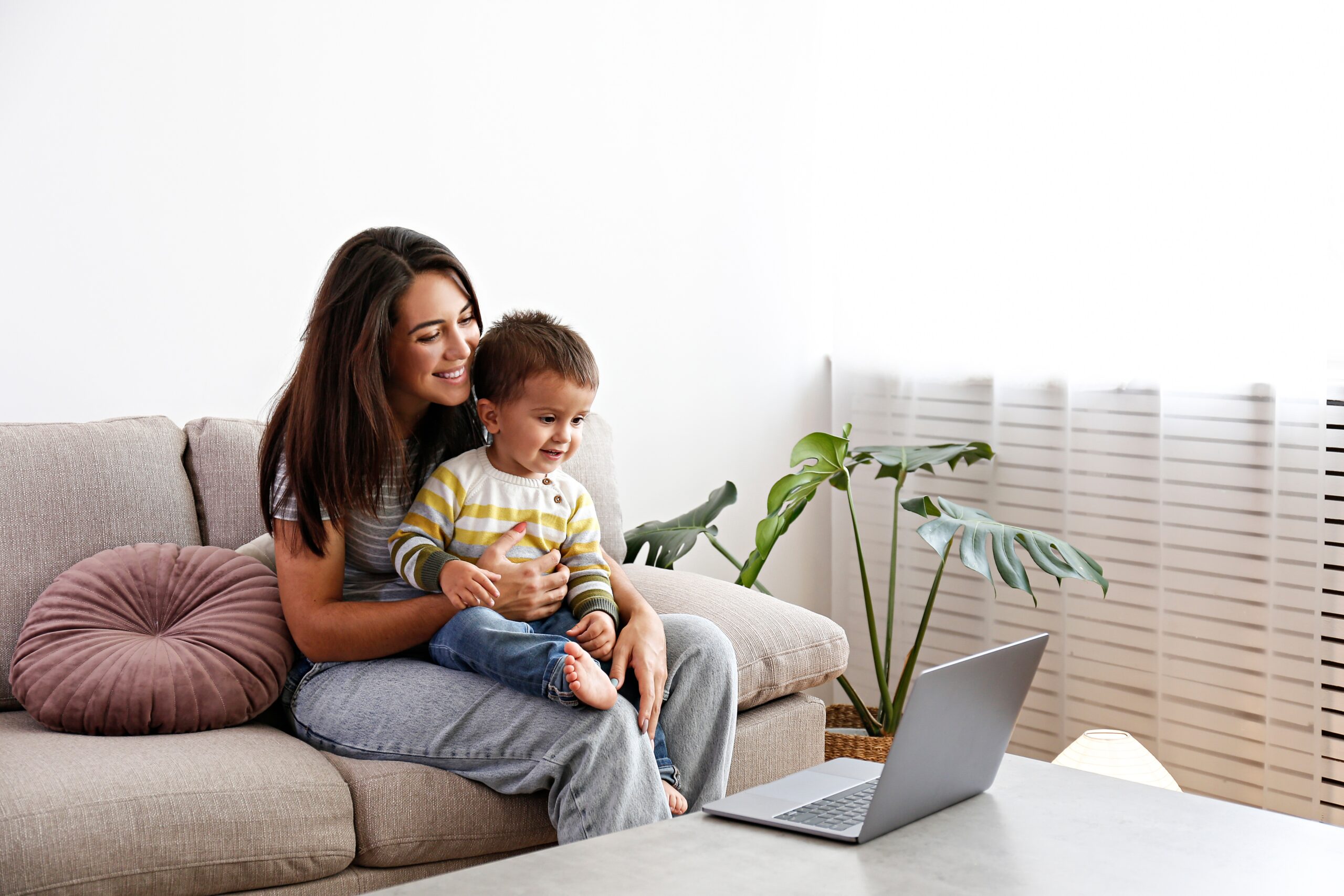
Video-intervention to promote positive parenting and sensitive discipline (VIPP-SD) (CPD85)
Gain accreditation in VIPP-SD and support parents and carers to build a stronger relationship with their child
We are offering an exciting opportunity for professionals working with young children (under six) and families to undertake training in video intervention to promote positive parenting and sensitive discipline (VIPP-SD).
Recommended in the NICE guidelines for children’s attachment (November 2015), and developed by some of the world’s leading attachment researchers from Leiden University in Holland, VIPP-SD is an evidence-based intervention designed to increase a parent or carer’s sensitivity and attachment to their child, with the ultimate goal of promoting secure attachment relationships.
Through a combination of teaching, group work and supervision with a practice family, this training programme will provide you with the knowledge, skills and support to use VIPP-SD in your practice. After completion of the training programme, you will have the opportunity to become an accredited VIPP-SD intervener. Training in VIPP-SD can also develop your ability to observe and understand young children’s communication and behaviour, and their interactions with caregivers, which can support your work with children and families at a broader level.
Why study with us?
Education and training at the Tavistock and Portman is distinctive: we are one of very few providers in the UK that can offer education within an NHS mental health clinical setting and the UK VIPP centre. This means that our students can get access to real-time, real-life case studies and expertise and insight from working clinicians.
This programme is unique in equipping participants with the knowledge and skills to deliver this evidence-based intervention embedding practice through ongoing support, supervision and guidance.
Aims and learning objectives
By the end of the course, you will have proficient knowledge and understanding in the VIPP-SD methodology, and will be certified and ready to practice. You will:
- understand the theoretical basis of VIPP
- be familiar with the principles of VIPP-SD
- have had experience of delivering the intervention through a ‘practice family’
- experience of receiving VIPP -SD supervision (six supervision sessions)
- have a clear idea of how to further develop your VIPP-SD skills
Who is this course for?
This course is for anyone working with families and younger children (aged six and under) in health, social care, the voluntary sector or a related setting, and who wants to become an accredited VIPP intervener.
For example, you might be working as a perinatal mental health practitioner, CAMHS clinician, psychotherapist, psychologist, foster care support worker, social worker, family support worker, nursery nurse, community nurse or an early years educator.
Course details
Training Days:
The next course will run on the following dates:
| Sessions | Date | Start time | End time |
|---|---|---|---|
| Session 1/7 | To be confirmed | ||
| Session 2/7 | |||
| Session 3/7 | |||
| Session 4/7 | |||
| Session 5/7 | |||
| Session 6/7 | |||
| Session 7/7 |
There will be a 20-minute coffee/tea break in the morning and a 40-minute lunch break at 12.20pm to 1pm.
This course will be delivered live via Zoom and will not be recorded.
You will need a device with a microphone and camera together with a suitably fast internet connection. Although mobile devices and tablets can be used, we recommend the use of laptop or desktop PC for the best experience. Some devices provided by employers may have restrictions in place. Please use this test link (https://zoom.us/test) to check your set up before booking.
You will be sent the necessary login link about a week before the course start date.
Should you have any concerns about the accessibility of remote delivery please contact us at CPDEvents@tavi-port.ac.uk to discuss how we can best help you.
Indication of training hours (total 114 hours)
Basic course (48 hours):
- Pre-training videos = 1 hour
- Read manual and literature = 12 hours
- Course attendance 7 x 5 hours = 35 hours (of which 7 x 4 hours of teaching = 28 hours)
Practice Family (57 hours):
- Home visit (HV) 1 (recording only) = 1 hour
- HV 2-7: 6 x 2 hours = 12 hours (travel time not included)
- Prepare home visits for intervention (scripts) = 44 hours, as follows:
- HV 2 and 3: 2 x 8 hours = 16 hour
- HV4 = 10 hours
- HV5, 6 and 7: 3 x 6 hours = 18 hours
Supervision (6 hours):
- Individual online sessions 6 x 1 hours = 6 hours
Assessment (3 hour):
- Assessment meeting = 1 hour
- Preparing for assessment = 2 hours
This course provides intensive training in the use of VIPP-SD. It begins with seven sessions of online training where you will be introduced to the theoretical and empirical basis of VIPP-SD. Over these training sessions you will be taught how to apply the principals of VIPP-SD, through a mix of teaching and small group work. You will be supported to observe and make sense of videotaped parent/carer-child interactions. This will develop your ability to observe and understand young children’s communications and their interactions with caregivers. You will then be supported to develop your skills in providing feedback to the parent/ carer on what you have observed.
Comprehensive feedback will follow each practice assessment, led by experienced instructors.
Following the seven training sessions, you will identify a family with whom you will deliver the intervention with. During these visits, you will film parents or carers interacting with their child through activities such as playing together, tidying up toys and mealtimes. You will then review the video material with the parent in the following home visit.
You will receive supervision with one of the VIPP trainers ahead of every home visit with your ‘practice family’. In these supervision sessions you will be supported to prepare your feedback for the next home visit.
You’re encouraged to start your VIPP intervention within six months of completing your training. Once you’ve completed your VIPP intervention with a practice family you will meet with the trainers for an assessment meeting to complete your accreditation.
In order to undertake this course, you should be working with young children (six and under) and be able to deliver the intervention within your setting.
Prior to starting the course, you will receive the VIPP-SD manual 3.0 and various additional training documents. We highly recommend the book: Promoting positive parenting: an attachment-based intervention (Juffer, Bakermans-Kranenburg & Van IJzendoorn, 2008). You’ll find a list of additional literature on VIPP in the manual – other related publications are available upon request.
Preparation for the training
In preparation of the training, you are required to:
- watch the three pre-training videos
- read parts of the Manual, and
- read an article
Practice family
Following the seven-day online VIPP-SD course, you will be supported to deliver your first VIPP-SD intervention with a practice family. As part of this you will need to identify a training family as soon as possible before or during the course. This could be an acquaintance, a friend of a friend for example, with a child between the ages of one and four years. You will work with one parent and one child. Preferably, the family should be a practice family, and not a service user, since you will still be learning. In some cases, we will allow training with a service user.
You will complete seven home visits with your practice family. During the first home visit, you will get acquainted with the parent(s) and child and make your first recordings; this should take no more than one hour. The following home visits (HV 2-7) will be intervention sessions in which you will make new recordings and provide feedback on previous videos. These will take between 1.5 to 2 hours each. The home visits are scheduled on a fortnightly basis. It typically takes three to four months to complete your VIPP intervention.
Accreditation
Throughout this programme, there is no need to complete any assignments or academic work, but you will be required to have satisfactorily completed all elements of the training programme. This includes the initial training sessions, supervision sessions, VIPP-SD intervention with your practice family and an evaluation session with your supervisor. Upon satisfactory completion of these, you will be an accredited VIPP intervener.
Equipment
Working with VIPP-SD means working with video as a professional. For the practice family, you will need a digital video camera and some (basic) editing equipment (e.g., Adobe Premiere Pro or Pinnacle Studio). Moreover, you will need a USB, DVD player or laptop that can be connected to TV with HDMI cables / or a protected external hard drive when a smart tv is available in the home of the family you’re working with. You will also need different sets of toys to bring to the family during the home visits. The types of toys will be discussed during the training course.
Library membership
Included in your course fee, you will receive online membership to the Tavistock’s internationally-renowned library for the duration of your course.
Our friendly and knowledgeable library team can support you with resources and will help to support you through your specialist CPD course, whatever your level of professional or academic experience. You will have access to an extensive range of eBooks, online journals, all the relevant key databases and our specialist audio-visual collection, plus reference access to all our print books.
Testimonials
Course facilitators
Register your interest
Bookings are now closed. Register your interest to join our waiting list and be the first to hear when this course reopens.


